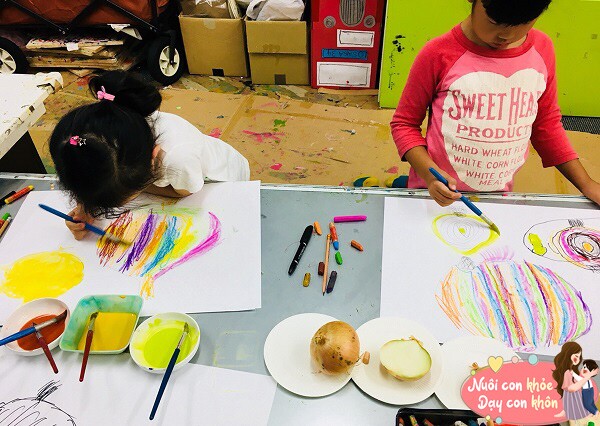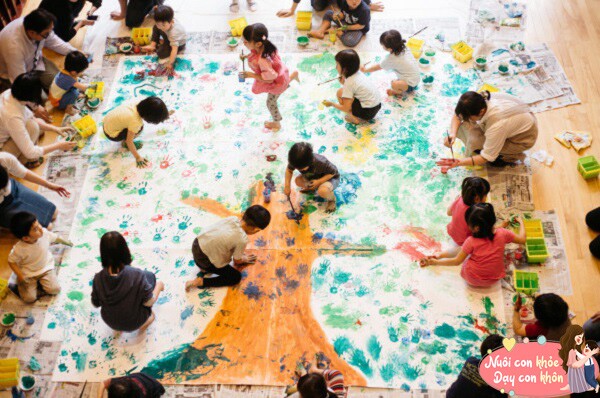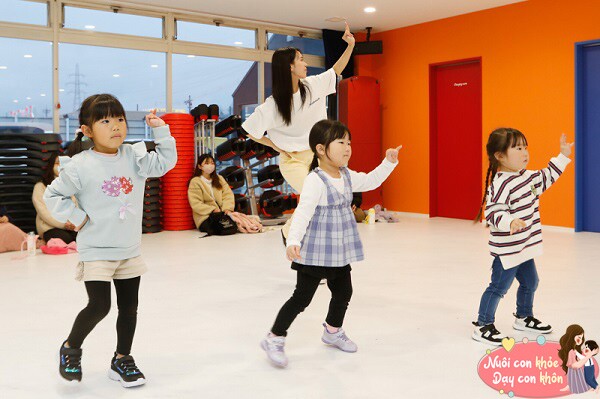Professor Li Meijin once pointed out that there are three types of hobby classes that are ineffective for children, wasting money, and not living up to expectations.

It’s not necessary to enroll your children in three types of hobby classes; it could be a waste of money.
Classes with unclear teacher qualifications
Nowadays, the marketing strategies of many hobby classes and educational centers are diverse and attractive, especially the advertisements that make promising claims about the program’s achievements and advantages.
Many parents are often confused and find it challenging to choose from these options, as the advertisements make them feel like they are presented with a treasure trove of opportunities. However, one of the significant drawbacks of many classes is that they do not clearly state the teachers’ qualifications and experience.
If parents hastily enroll their children without thoroughly researching the teachers’ backgrounds and expertise, it could lead to their children being exposed to ineffective teaching methods.
Inexperienced teachers may not be capable of conveying knowledge clearly and engagingly, affecting the children’s enthusiasm for learning. Children may feel discouraged, lose interest, and gradually diminish their passion for learning.

Hobby classes provide children with opportunities to develop their talents.
Classes with a large number of students
While teaching large classes is common, it may not be effective for children’s learning. When a teacher faces dozens of students, it is challenging to cater to each child’s unique needs and characteristics. This leads to a one-size-fits-all approach, which may not suit all learners, from fast learners to those who need more time to grasp the material.
In such a scenario, the children’s learning effectiveness is limited. When they do not receive adequate attention from the teacher, they may feel neglected and gradually lose interest in their studies. This lack of attention hampers their knowledge acquisition and social skill development, as they miss out on interacting with their peers.
Children typically require emotional and spiritual support from their teachers to thrive. Without this connection, they often feel alienated and undervalued.
Classes with excessive advertising
Some hobby classes attract parents’ enrollment through excessive advertising and promises of “quick success” and “significant improvement.” These assurances often create high expectations for parents, believing that their children will immediately succeed after a short time in the program. However, in reality, this type of over-the-top advertising is often misaligned with the actual situation.
When children participate in such classes, they may encounter programs that are not genuinely designed for sustainable skill development. Sometimes, the teaching focuses only on superficial skills without building a solid foundation for long-term growth.
Moreover, the emphasis on “quick success” can put immense pressure on children. When they feel they must achieve results rapidly, it may foster anxiety and a fear of failure, leading to the development of a habit of avoiding challenges.

Parents should reconsider if the class has too many students.

How should parents choose hobby classes for their children?
When selecting hobby classes for their children, parents should avoid the aforementioned misunderstandings and focus on three key points: respect, exploration, and discovery.
Respect your child’s interests and choices
When choosing a hobby class, the most important thing is to respect your child’s opinion. A child’s interest in a particular field will directly determine their willingness to commit to learning.
If parents force their children to participate in classes they are not interested in, it may lead to resistance and strain the relationship. Therefore, before making any decisions, it is crucial to communicate and understand your child’s thoughts.

Respect your child’s interests and choices.
Explore their potential and talents
Some children have a clear understanding of their interests and talents, while others may not be as certain. In the latter case, parents need to observe their children’s activities and discover their areas of interest.
For example, your child may have a particular sensitivity to music or a curiosity about scientific experiments. In such cases, parents should choose hobby classes that align with these interests to further explore their potential.
Investigate the teachers’ expertise
Parents should not only verify if the class content aligns with their child’s interests but also thoroughly research the instructors’ qualifications and teaching quality.
Additionally, parents can check the class’s reputation through online reviews or social media platforms to ensure they select a high-quality and suitable program for their child.

How to balance talent development and enjoyable learning?
Many parents mistakenly believe that enrolling their children in various hobby classes and cram schools will give them a head start. However, overloading children with too many activities can cause stress and rob them of their childhood joy.
In reality, education is not about blindly pursuing scores and skills but about allowing children to discover their interests and find joy in learning.
Offer choices and encourage exploration
Parents should give their children the freedom to choose and encourage them to explore different areas. When children are free to discover their passions, they will grow more naturally and confidently. If a child shows disinterest in a particular class, consider adjusting the direction of learning or choosing an alternative.
Nurturing interests should not be rushed; it requires time for accumulation and adjustment. Each child has their own pace of development, and by allowing them to experiment with various fields, you enable them to discover their true passions. Parents can create opportunities for their children to engage in extracurricular activities, clubs, or trial classes in painting, dancing, singing, etc.

Offer choices and encourage exploration.
Focus on companionship and provide appropriate training
For young children, parental companionship is more important than hobby classes. Simple interactions and games at home can effectively stimulate their interest in learning.
For instance, by engaging in crafts, music, or reading together, children can learn and develop in a joyful environment.
Adopt a long-term perspective on your child’s development
Parents should recognize that education is a long-term process, and children’s development cannot be accelerated through short-term training programs. Instead of rushing for immediate results, it is better to lay a solid foundation for their future and help them develop good study habits and a positive attitude.
While parents have good intentions when choosing hobby classes for their children, overly pragmatic decisions can backfire. The most important thing is to respect your child’s interests, personality, and provide them with the space to choose and explore. This way, they can truly find their path and maintain a comfortable and happy state of mind.

































